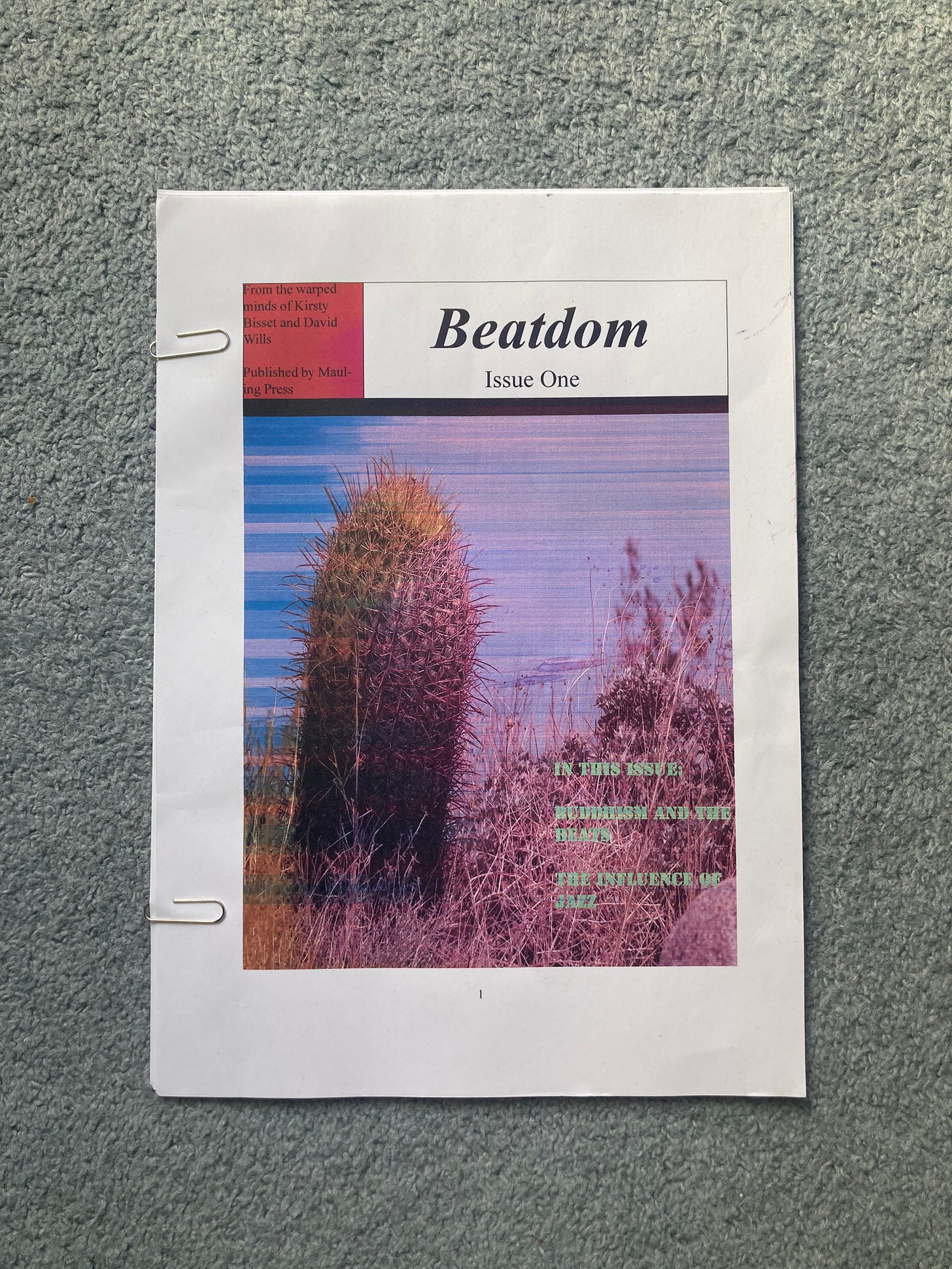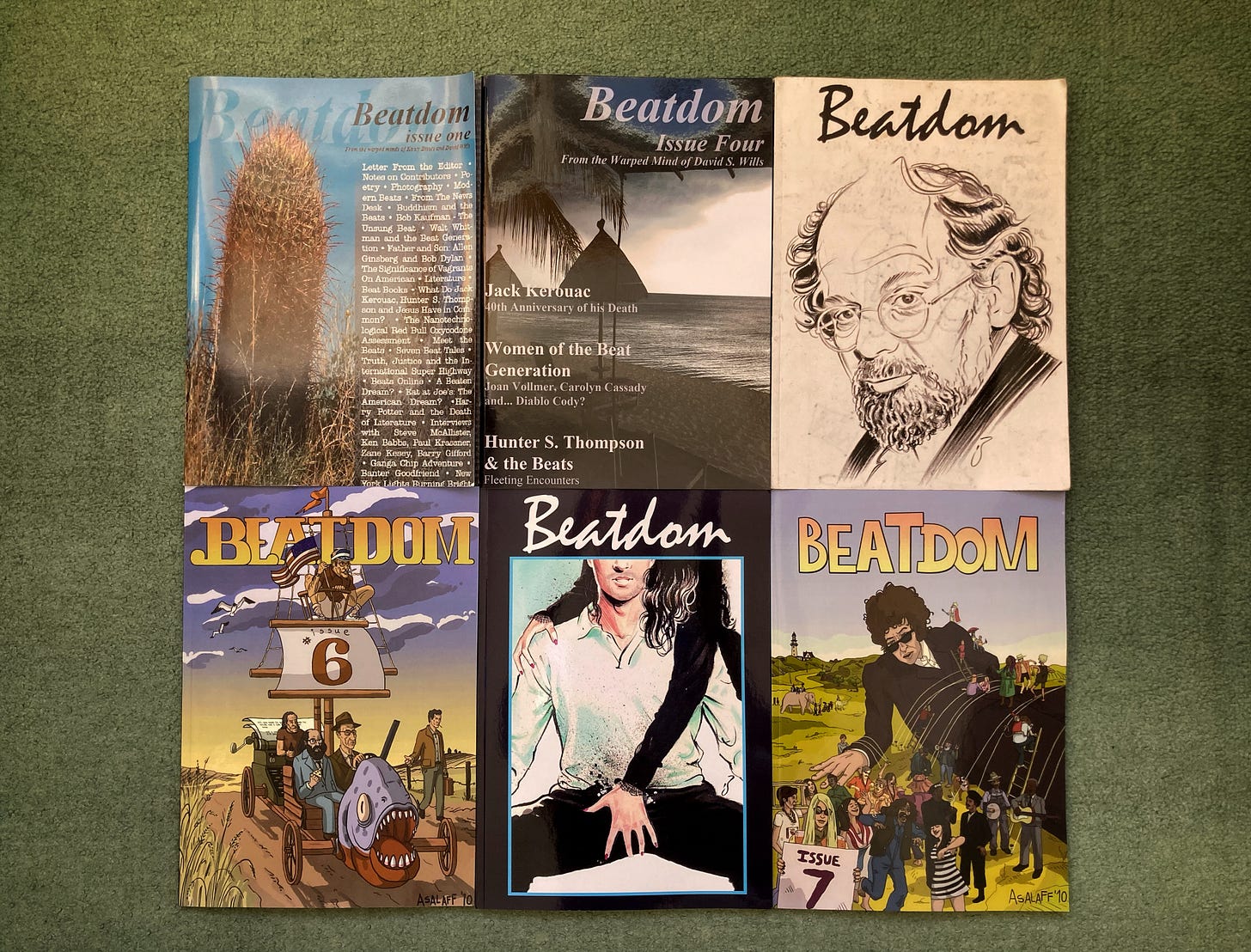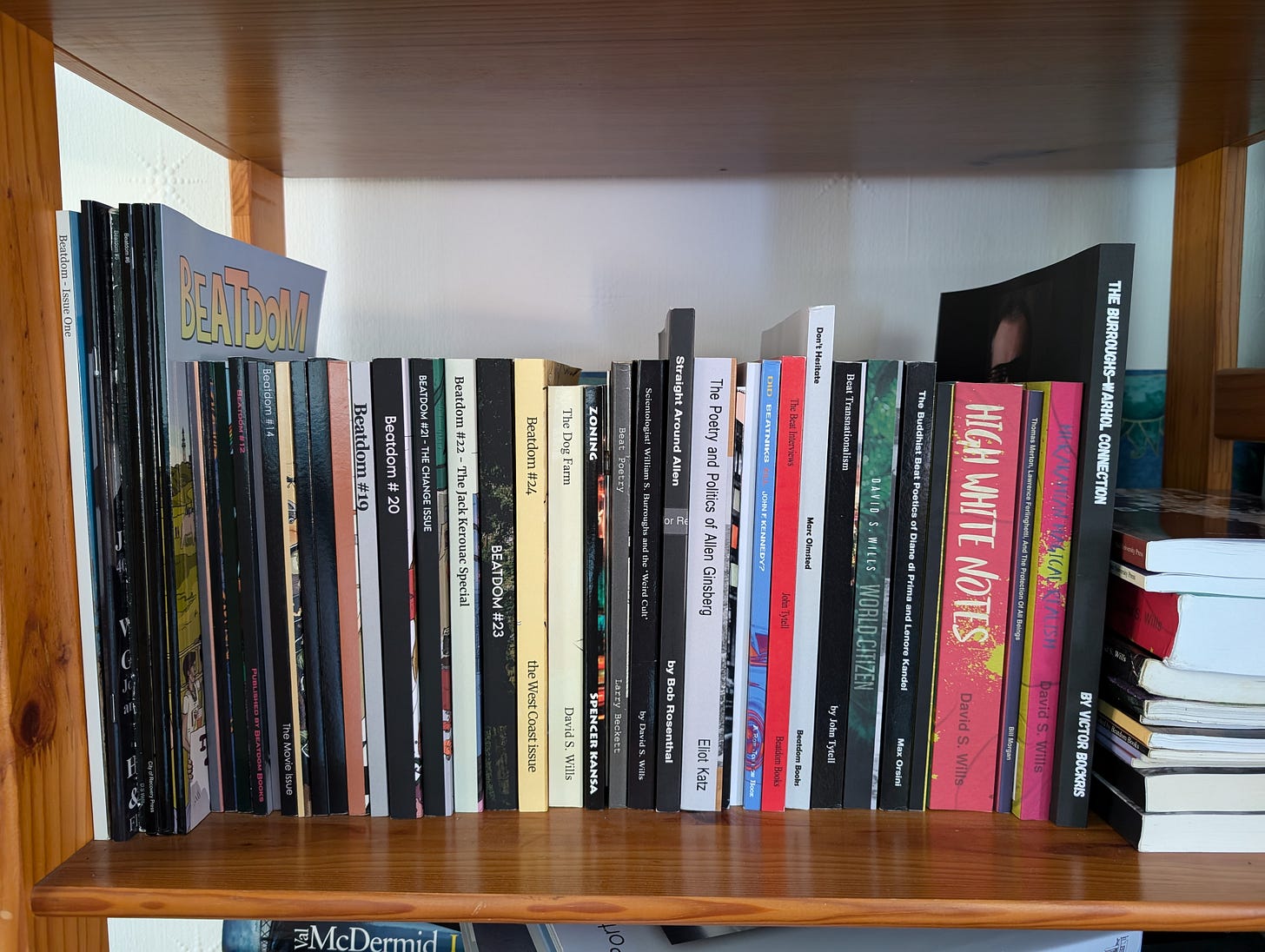Beatdom was founded in May 2007. That somehow feels like just a few years ago and yet at the same time a whole lifetime ago. It occurred to me only recently that this month marks our 18th anniversary, which in a strange way feels like a major milestone. It is as though Beatdom is a person rather than a literary journal, and if it were a person, it would now be old enough to drink, to smoke, and to vote. It would be an adult.
This may seem silly but it sort of makes sense. In the early years, we were filled with energy and enthusiasm but lacking in maturity. We tried hard and felt we were doing well but looking back I cringe at some of what we published. It was always well-intentioned but usually juvenile, lacking in substance. Later, we went through our awkward years of feeling grown-up but still not really being sure of ourselves. We tried this, tried that, and were always self-conscious. Only recently have we begun to form a more coherent, developed, and mature identity.

The origins of the journal are somewhat hazy because it was conceived in the back of a pub in Dundee, Scotland, and then discussed over a few boozy meetings in student flats around the city. Although several of us came up with the idea, everyone quickly dropped out and I ended up as the sole editor. I compiled the first issue from my friend’s couch, which was my home during the summer of 2007.
Beatdom was originally intended as a local and very political magazine that took inspiration from the Beat writers, but it quickly evolved into something very different. For one thing, it rapidly moved beyond a local publication. I moved to Asia about six months after the first issue was published and have lived here ever since. The near-magical powers of the internet have allowed me to communicate quickly and easily with contributors, distributors, readers, interviewees, and many other people from around the world. From the beginning, then, the journal was a weirdly transnational phenomenon. I used to keep track of the countries where Beatdom was sold or where our writers lived, but it soon grew hard to keep up.

To begin with, Beatdom was a big glossy magazine and very expensive to print. We worked with artists to make it highly visual and often we had a lot of poetry and short fiction. Later, we switched to the format you will now recognise, which is more like a book than a magazine—6x9 inches, black-and-white print, and anywhere between 150 and 300 pages. We’ve been through various editors and artists but for about the past ten years the journal has been edited by yours truly and the covers have been produced by Waylon Bacon. We evolved from having a loose production schedule (often two issues a year) to printing every May. This year is the exception and we’ll print in October to mark the 70th anniversary of the 6 Gallery reading. (We’re open to submissions for another two months.)
In 2011, I founded Beatdom Books, essentially expanding the company to publish books as well as the journal. In the beginning, that included poetry collections and novels, but alas it proved too difficult to market these and so we decided to focus on books entirely about the Beat Generation. Concentrating on one particular area made it easier to form a community and connect writers and readers. To date, we have published 22 books in addition to the 24 journal issues that have come out.
We have tried to utilise modern technologies to reach as many readers as possible and that has meant trying various social media platforms, some of which no longer exist or are virtually abandoned. We even did one episode of an intended podcast series back in 2013. Our website—www.beatdom.com—has been online for most of these 18 years, using very different designs and surviving a number of debilitating hacks. It contains more than 600 articles and essays. The latest effort has been Substack, which we originally adopted as a mailing list but which now functions as a place to post long-form content. It supports our mission to make high-quality essays available for free without resorting to advertising. If you haven’t already, consider subscribing:
I used to say, whenever people asked me about the future of Beatdom, that I had no idea if there would be another issue. I was typically asked this when exhausted after spending months on a book or journal issue and I didn’t even want to think about the next one. But there was some truth to it. For years, the journal just trundled along aimlessly and uncertainly. It was an exhausting task to edit it and maintain an online presence, especially when done in conjunction with a full-time job. There were certainly times I felt that it would be sensible to call it a day. But recently I’ve changed and begun planning several years in advance and now there are plans for books and issues as far ahead as 2027, when we will celebrate our 20th anniversary.
It’s a rapidly changing and highly unstable world but it’s good to look forward and envisage a world in which there is a small place for our journal. In fact, with the rise of AI and social media and insipid short-form content, it’s a miracle that small presses like ours can even scrape by. But we all need positivity and distraction right now. And perhaps the Beat Generation is more relevant than ever. The question I am most often asked when I give lectures or interviews is “Why do you think the Beats are relevant today?” I usually reply that the Beat writers operated in a world where old values no longer seemed relevant and where the future was uncertain at best. It was confusing, they felt disaffected, and everything around them seemed superficial, but they responded with art, with individuality, with intelligence and grace and radical honesty. I think there’s much to learn from that.
Later this year, we will put out a special edition of our journal, devoted to the San Francisco Renaissance, which could be said to have begun with the 6 Gallery reading of October 7, 1955. We will also publish the first ever book devoted to that subject—a long and detailed study of the reading and the building in which it took place. We will also bring you a memoir of life in the Burroughs Bunker. Next year we have more books planned and an Allen Ginsberg centennial special edition. All this is to say that at 18 years old Beatdom is going strong and looking to the future even in a world where such a thing is becoming increasingly difficult.





David, thank you for this detailed origin story. And for your continuing efforts to produce the best of the journals devoted to the Beat universe. I raise a glass to you!